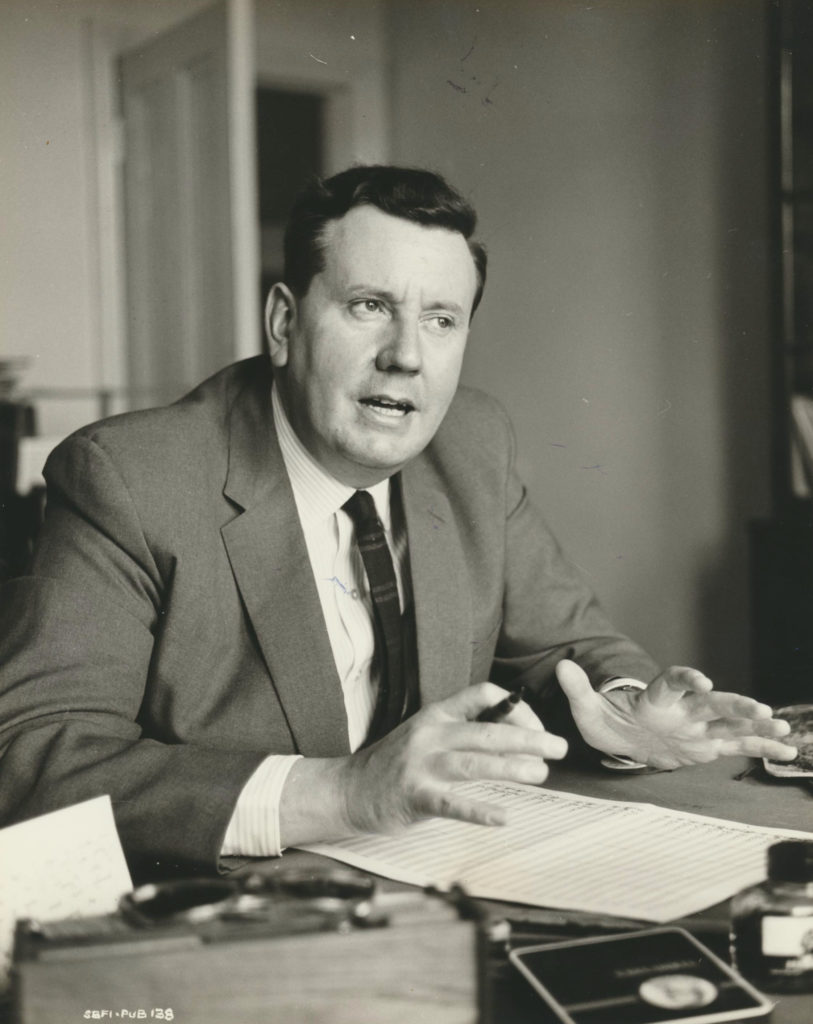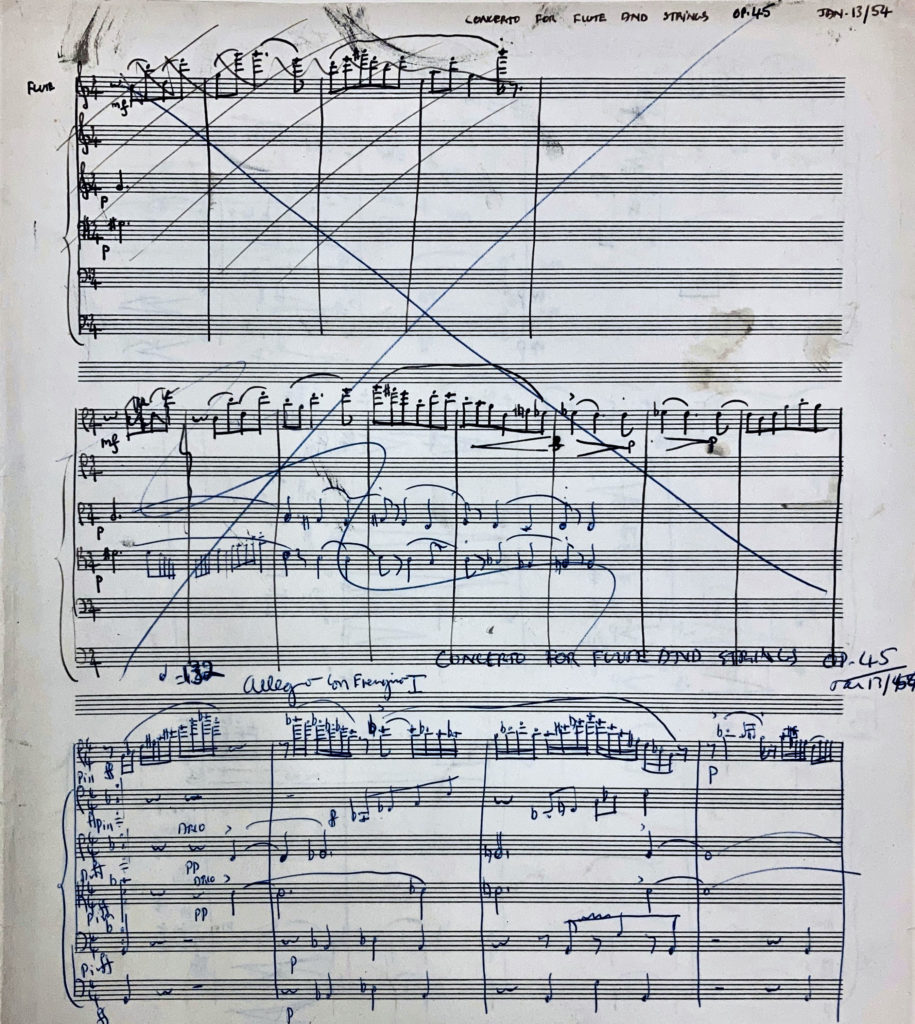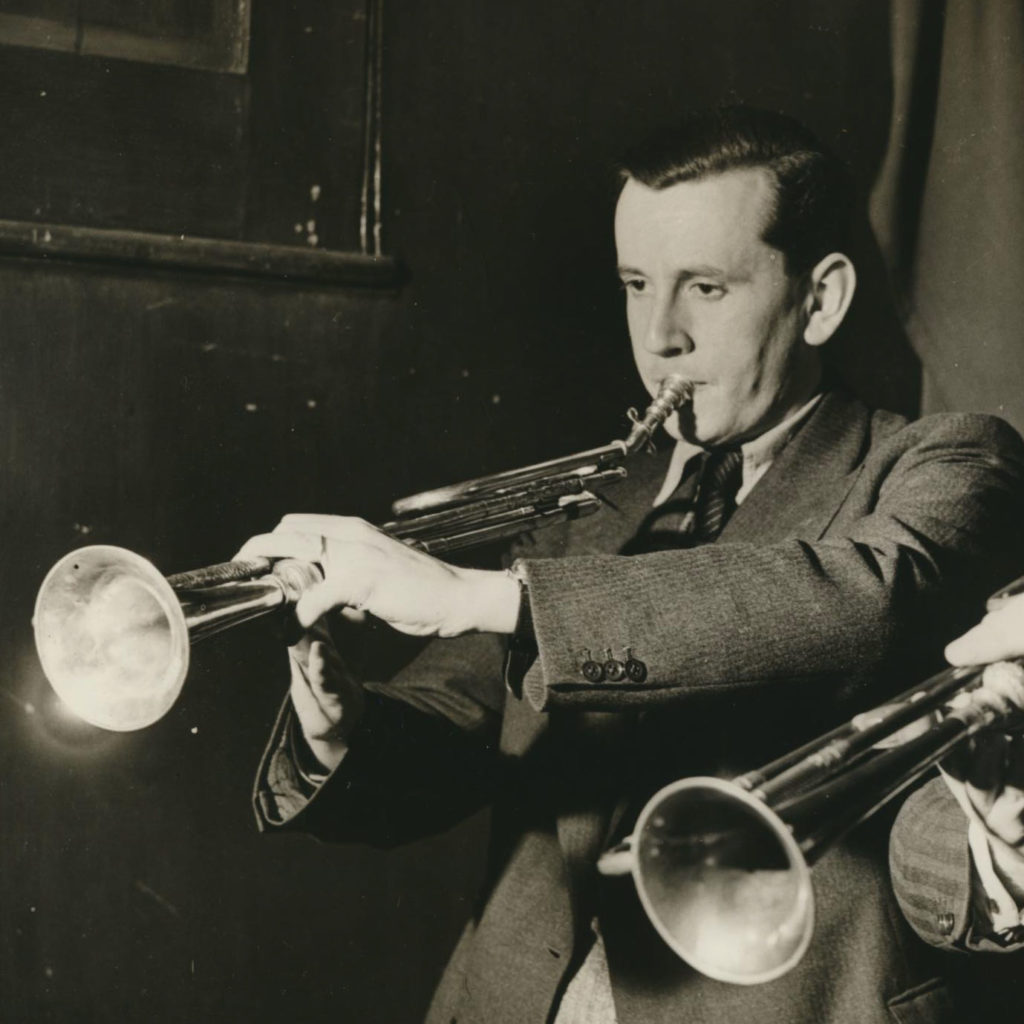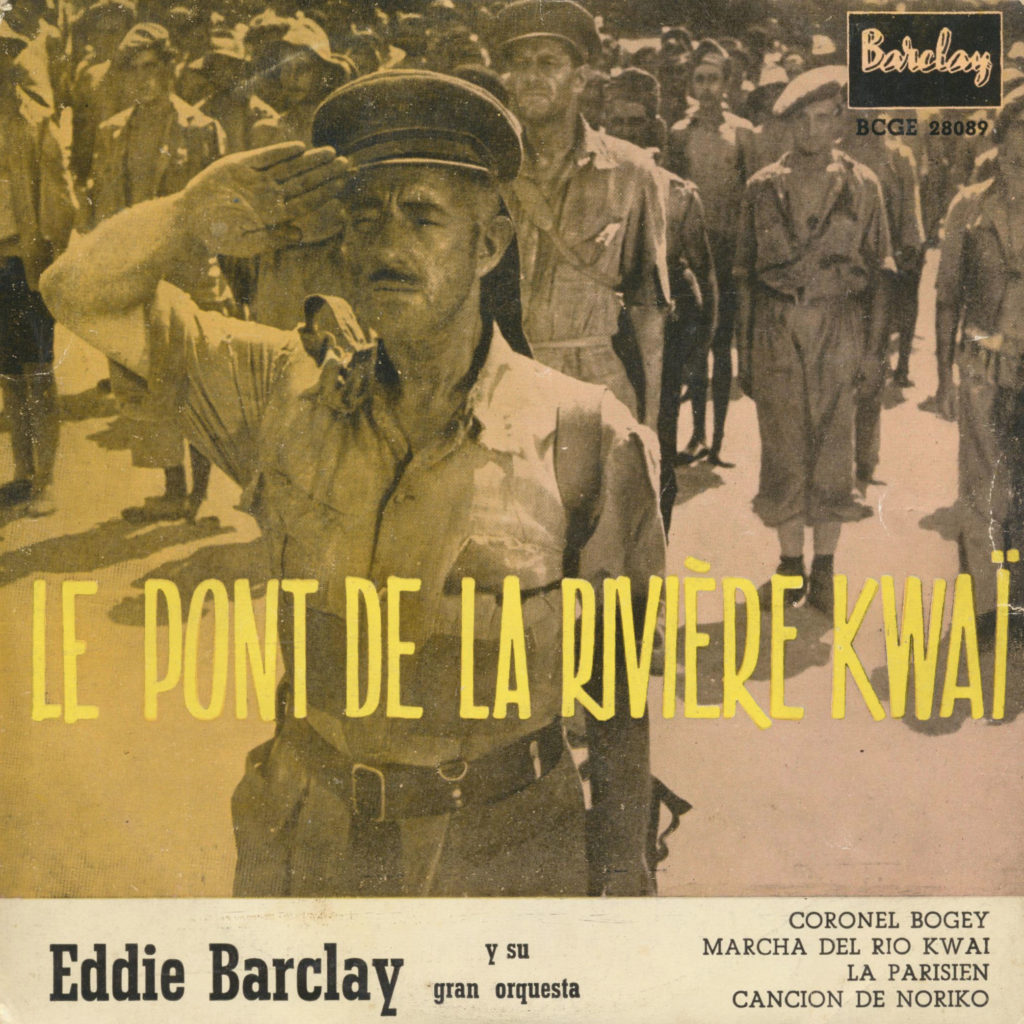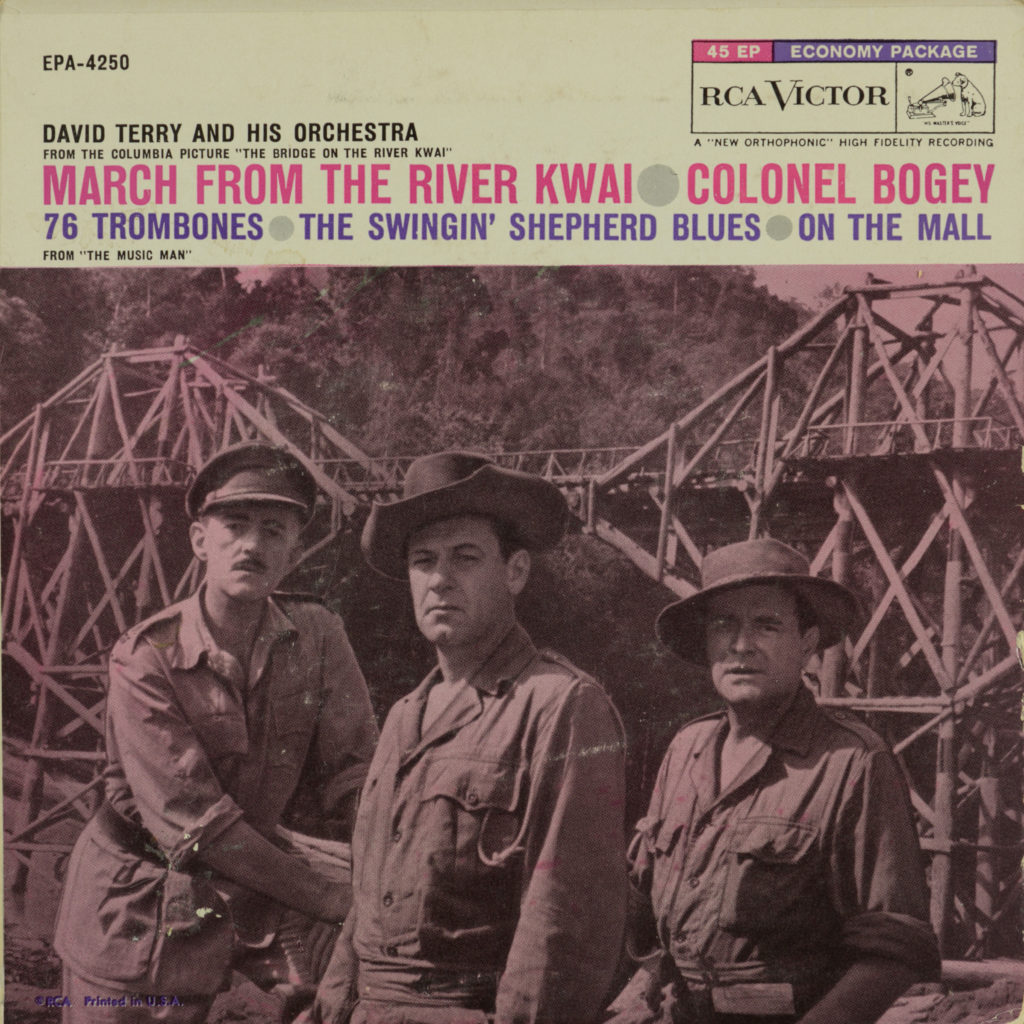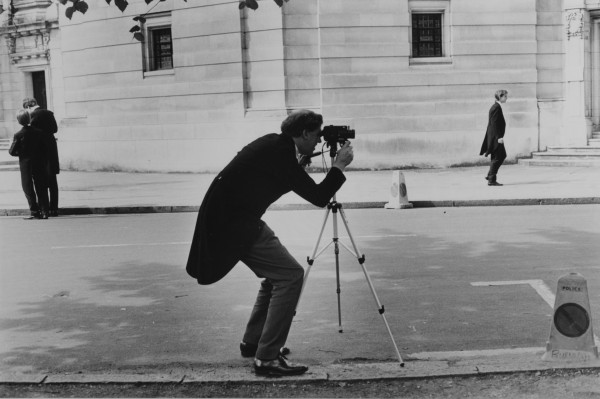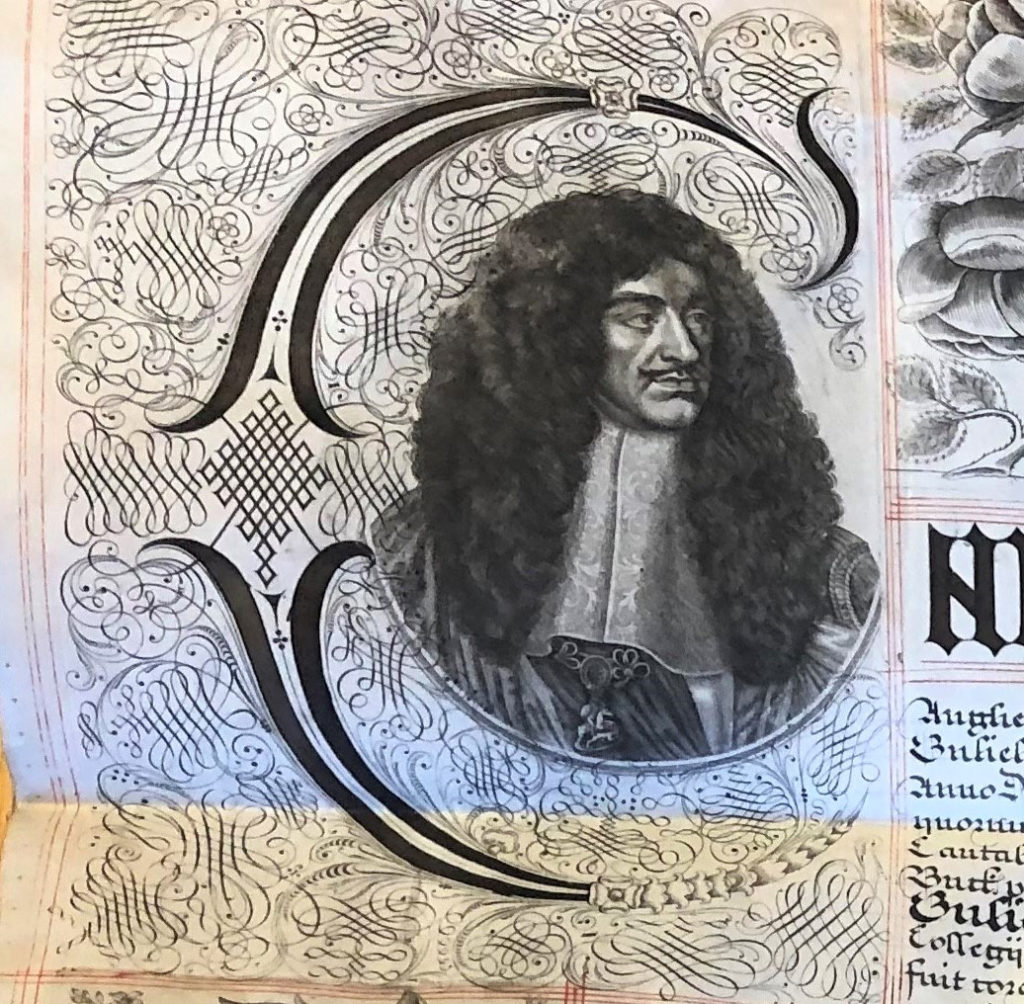Celebrating 100 years of the ‘Rogue Genius’
College Library is delighted to announce its imminent acquisition of the archive of Sir Malcolm Arnold (1921-2006), marking 100 years since the composer’s birth on 21 October 1921. Happy birthday, Sir Malcolm!
The Malcolm Arnold Archive, assembled by the composer’s daughter Katherine, comprises over 200 autograph scores from sketches to fair copies, in addition to correspondence, personal papers, and photographs. Among the scores are fair copies of five of Arnold’s nine symphonies, a dozen concertos, as well as much of his well-known film music, offering a rare glimpse into their compositional process. Of particular note are unknown sketches—a treasure trove for future researchers.
Though perhaps best known for his Oscar-winning score for the film The Bridge on the River Kwai (1957), Malcolm Arnold was an exceptionally versatile composer whose works include twenty concertos, fifteen pieces for solo piano (Arnold’s first instrument), two complete operas, and countless more scores for film and television, many of which are now at Eton.[1] Arnold was a prodigious musician from a young age, supported by musical parents who had no small talent of their own. At 13, an encounter with the great jazz musician Louis Armstrong set Arnold’s heart on the trumpet, with which he entered the Royal College of Music in 1938 and the London Philharmonic Orchestra in 1941. Great success and recognition followed, both as a musician and a composer, but his personal life was marked by mental struggle.[2] Arnold died in 2006, just weeks shy of his 85th birthday.
The Archive first arrived in the Library in 2015, on loan from Katherine Arnold and forming the foundation of the Malcolm Arnold Project—a collaboration between the Library and Eton Music Department promoting engagement with Arnold’s works through teaching and performance. In 2017, archival material was displayed in the exhibition A Gesture of Friendship (Arnold once remarked that music is “a social act of communication among people, a gesture of friendship, the strongest there is”).[3] A series of further deposits, instigated by Katherine Arnold, took the Archive from strength to strength. Today, the Malcolm Arnold Archive is supplemented by additional autograph scores and letters purchased by the Library since 2017 and a collection on loan from Arnold’s bibliographer Alan Poulton of reference material, movie posters, audio recordings.[4] Together, these resources will ensure that Arnold continues to be studied, taught, and performed.
In his own time, Arnold’s unpretentious versatility and belief in the sheer delight of music often put him at odds with the ‘serious’ musical establishment. It’s true that he was unafraid to poke fun at convention—witnessed in works such as The Padstow Lifeboat (1967) in A flat, with its irreverent foghorn blasts on a dissonant D natural, or in the rollicking send-up A Grand, Grand Overture (1956). Yet Arnold wrote with total sincerity, frequently declaring that his music was always an outward expression of feeling. Personal favourites among his many works include the 5th Symphony (1961) with its devastating finale—’the one that contains my whole life’—and the 2nd Clarinet Concerto (1974) commissioned by Benny Goodman.[5] [6]
A century on from his birth, Arnold is as delightful and provocative as ever. The Malcolm Arnold Archive at Eton invites us to dig deeper into the most prolific composer of the 20th century.
The Malcolm Arnold Archive is catalogued as MS 921. It is open to researchers on application to the Library (further information can be found on our website).
By Daniel Haynes, Assistant Librarian.
References and links
[1] Alan Poulton, The Music of Malcolm Arnold: A Catalogue (Faber, 1986), ‘Classified list of works’.
[2] A comprehensive and sensitive account of ‘Britain’s most misunderstood composer’ is given in Anthony Meredith and Paul Harris, Malcolm Arnold: Rogue Genius (Thames/Elkin, 2004).
[4] This material is catalogued as MS 933.
[3] A Gesture of Friendship was curated by Lucy Gwynn and Michael Meredith. Learn more here.
[5] The manuscript score held at Eton has Arnold’s instructions to Goodman to play ‘as jazzy and way out as you like’. ECL MS 921/1/3.
[6] Arnold’s remark on his 5th Symphony is quoted in Paul Harris, Malcolm Arnold in Words: A compilation of his writings and interviews (Queen’s Temple Publications, 2011), p. 123.


